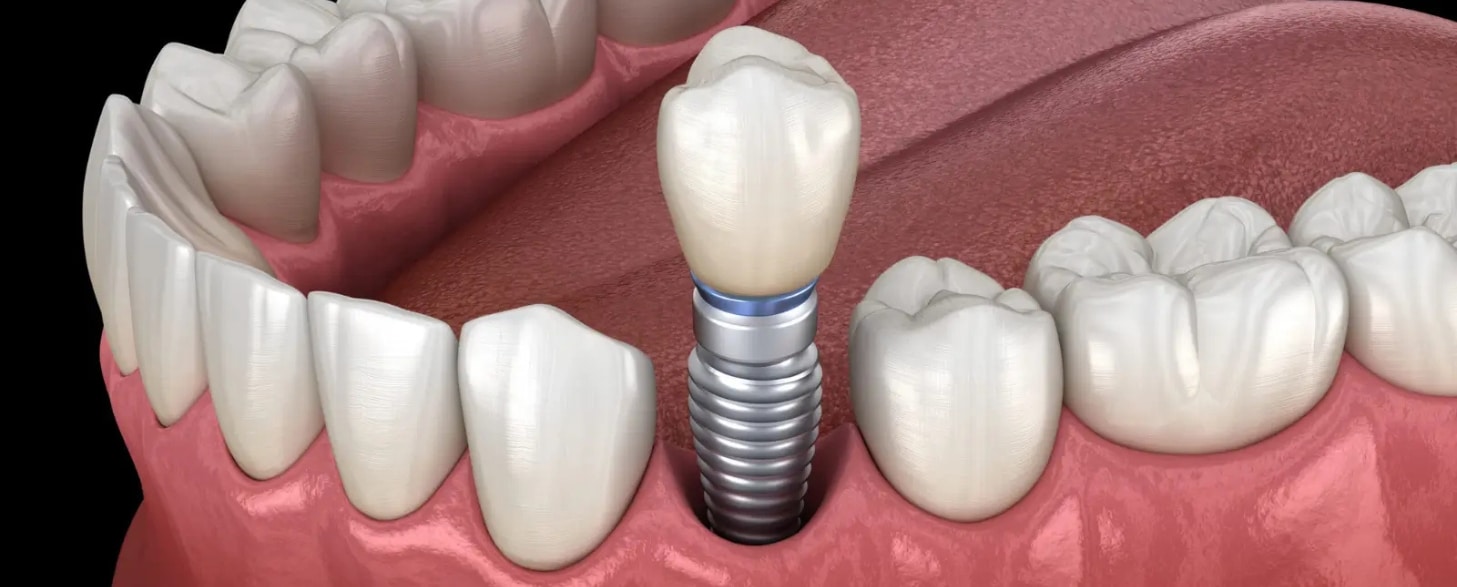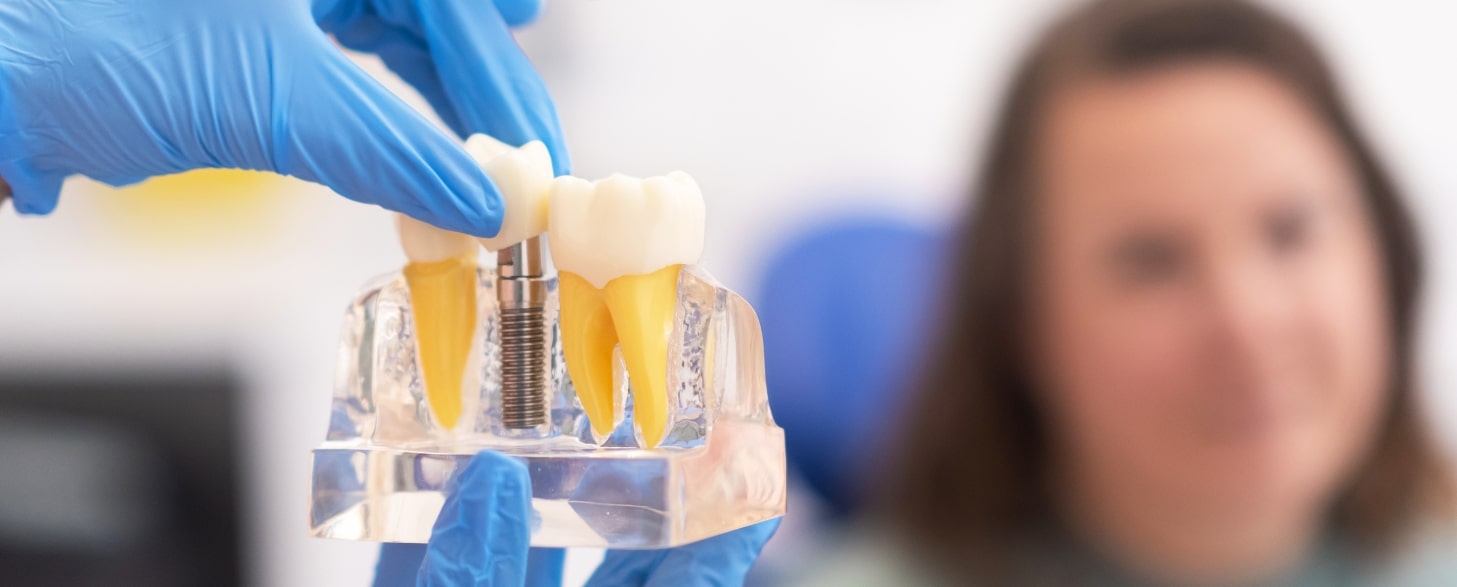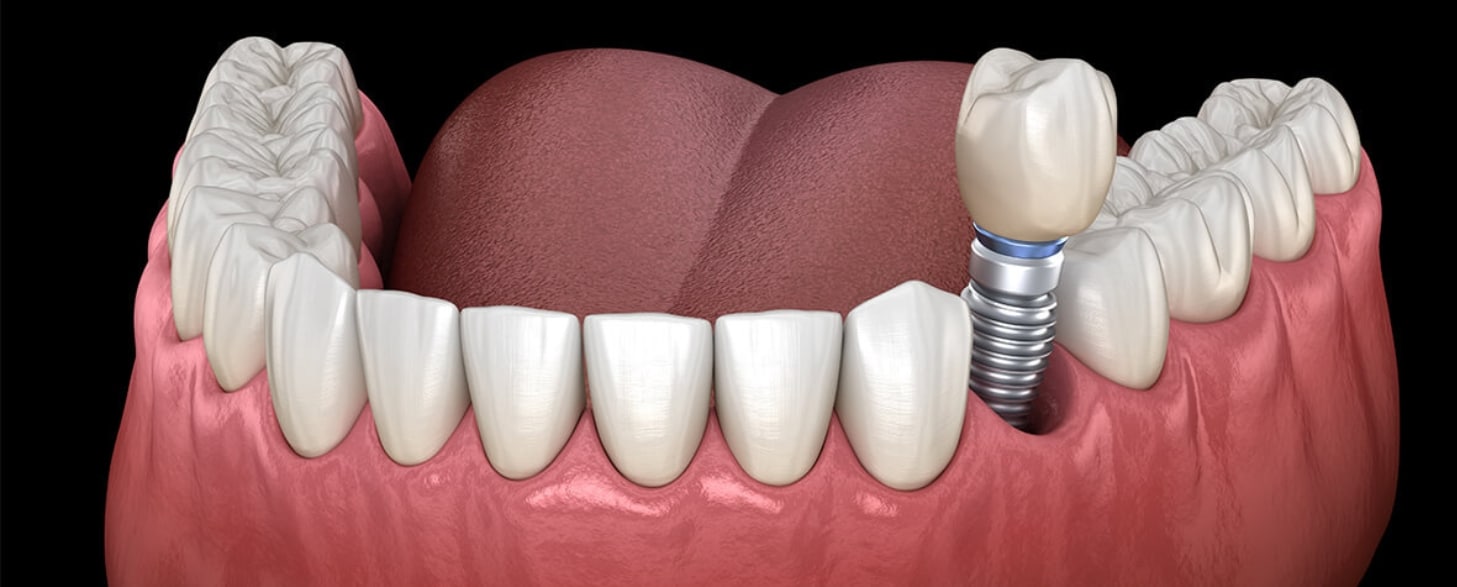How to Care for Your Dental Implants for Longevity: A Comprehensive Guide
San Antonio, TX
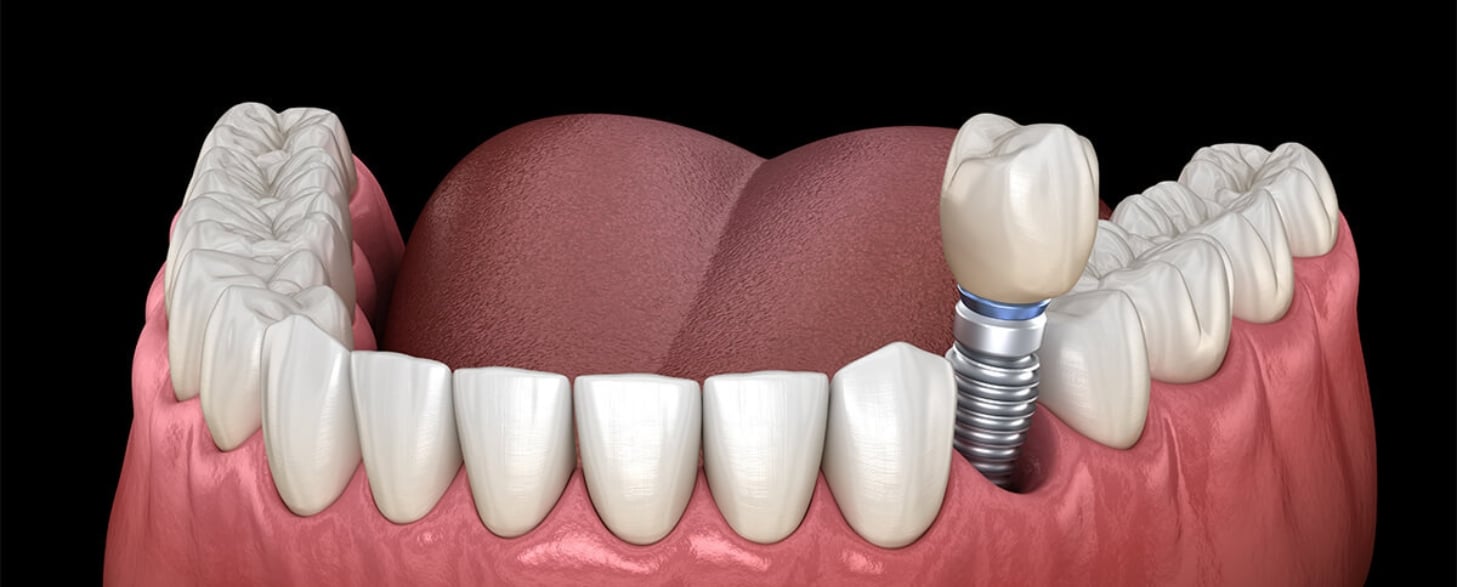
Dental implants are an excellent solution for replacing missing teeth, offering both aesthetic and functional benefits. Renowned for their durability, the longevity of dental implants relies on proper care to keep them in optimal condition for many years. In this comprehensive guide, we’ll cover the best practices for maintaining your dental implants, address common concerns, and offer tips to help extend their lifespan.
Understanding Dental Implants
What Are Dental Implants?
Dental implants consist of three main components:
- Implant Post: A titanium post inserted into the jawbone to act as the tooth root.
- Abutment: A connector placed on top of the implant post, which holds the crown in place.
- Crown: A custom-made tooth-shaped cap that covers the abutment and restores the appearance and function of the missing tooth.
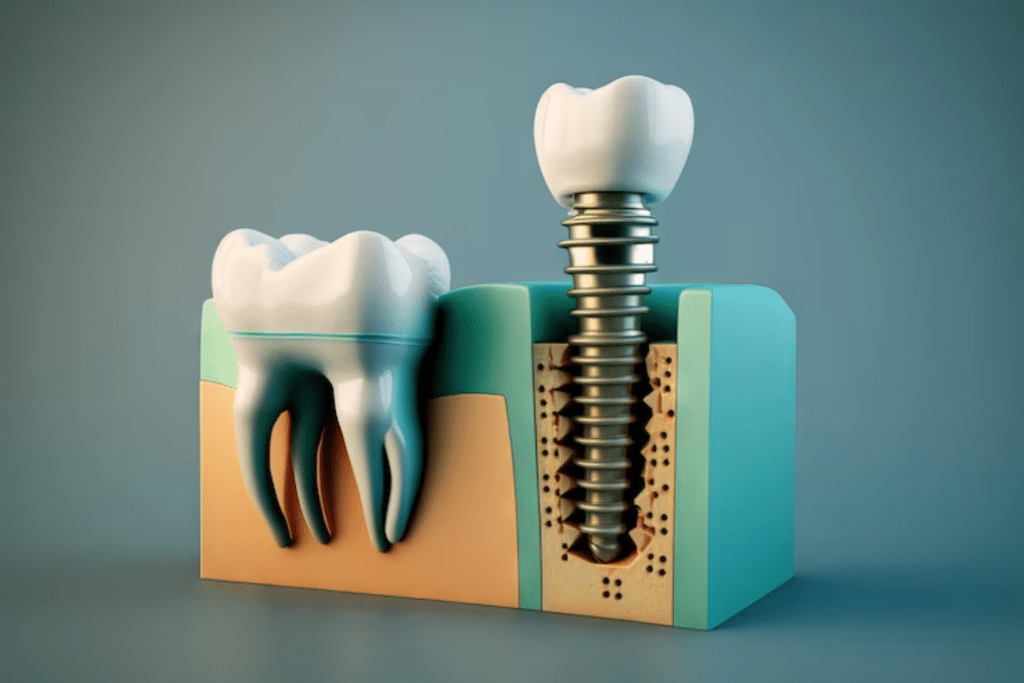
How Do They Work?
The implant post integrates with the jawbone through a process called osseointegration, where the bone grows around the post, providing a stable foundation for the crown. This integration is crucial for the success of the implant, making proper care and maintenance vital.
1. Maintain Excellent Oral Hygiene
Brushing and Flossing
Maintaining a rigorous oral hygiene routine is critical for the longevity of your dental implants. Plaque and tartar buildup can lead to gum disease and potential implant failure. Follow these guidelines:
- Brush Twice Daily: Use a soft-bristled toothbrush and fluoride toothpaste to clean your teeth and implants at least twice a day. Brush gently around the implant area to avoid damaging the surrounding gum tissue.
- Floss Daily: Flossing helps remove plaque and food particles from between your teeth and around the implant. Use unwaxed dental floss or specialized interdental brushes designed for implants to clean effectively without harming the gums.
Additional Tools
Consider using the following tools to enhance your oral care routine:
- Electric Toothbrush: An electric toothbrush can be more effective at cleaning around implants and is easier on the gums.
- Water Flosser: A water flosser can help flush out debris and plaque from hard-to-reach areas, complementing traditional flossing.
2. Avoid Hard and Sticky Foods
Protect Your Implants
Although dental implants are designed to be durable, consuming certain foods can pose risks:
- Hard Foods: Foods like nuts, ice, and hard candy can exert excessive pressure on your implants and potentially damage them. Chewing on hard objects or biting into very hard foods can lead to cracks or loosen the crown.
- Sticky Foods: Sticky foods, such as caramel and taffy, can pull at the implant crown and increase the risk of loosening. These foods can also contribute to plaque buildup, which can lead to gum disease.
Dietary Recommendations
Opt for a balanced diet that supports overall health and the integrity of your implants. Include plenty of fruits, vegetables, lean proteins, and whole grains in your meals. This will help maintain strong gums and healthy bone structure.
3. Avoid Tobacco Products
Impact of Tobacco on Implants
Tobacco use can negatively affect the success and longevity of your dental implants in several ways:
- Impaired Healing: Smoking reduces blood flow to the gums, impairing the healing process and increasing the risk of implant failure.
- Increased Risk of Infection: Tobacco use can contribute to gum disease and infections around the implant, jeopardizing its stability.
Quitting Tobacco
If you use tobacco products, seek support to quit. Your dentist or healthcare provider can offer resources and strategies to help you stop smoking and improve your oral health.
4. Schedule Regular Dental Checkups
Importance of Routine Visits
Regular dental checkups are essential for maintaining the health of your dental implants. Aim for biannual visits to your dentist for:
- Professional Cleanings: Your dentist will perform professional cleanings to remove plaque and tartar buildup that may not be fully addressed through at-home care.
- Examinations: During your checkups, your dentist will evaluate the condition of your implants, check for signs of gum disease or infection, and ensure that the implant and crown are functioning correctly.
Early Problem Detection
If you experience any issues such as discomfort, changes in bite, or problems with your implants, contact your dentist promptly. Early intervention can prevent more significant complications and help maintain the health of your implants.
5. Manage Bruxism
Understanding Bruxism
Bruxism, or teeth grinding and clenching, can put excessive stress on your dental implants and natural teeth. This can lead to implant damage, discomfort, and other oral health problems.
Strategies for Management
If you have bruxism, consider the following strategies:
- Night Guard: A custom-fitted night guard can protect your implants and natural teeth from the effects of grinding and clenching. Consult your dentist to determine if a night guard is appropriate for you.
- Stress Management: Stress and anxiety are common triggers for bruxism. Engage in stress-reducing activities such as relaxation techniques, meditation, or therapy to help manage bruxism.
6. Use the Right Oral Care Products
Choosing the Right Products
Selecting the appropriate oral care products can enhance the health and longevity of your dental implants. Consider these recommendations:
- Non-Abrasive Toothpaste: Use a non-abrasive toothpaste to clean your implants without damaging the surface.
- Antimicrobial Mouthwash: An antimicrobial mouthwash can help reduce plaque and bacteria around the implants. Choose a mouthwash that is alcohol-free to avoid irritation.
Consult Your Dentist
Your dentist can recommend specific oral care products tailored to your needs. Follow their advice to ensure you are using the best products for your dental implants.
7. Protect Your Implants During Sports and Physical Activities
Using Protective Gear
If you participate in contact sports or high-impact activities, protecting your dental implants is crucial:
- Mouthguard: Wear a mouthguard to cushion your teeth and implants from trauma. This can prevent damage and injury during physical activities.
Custom-Made Mouthguards
For the best protection, consider getting a custom-made mouthguard from your dentist. Custom mouthguards provide a better fit and superior protection compared to over-the-counter options.
8. Address Potential Problems Promptly
Common Implant Issues
Despite careful maintenance, you may encounter problems with your dental implants. Here are some common issues and their solutions:
- Implant Loosening: If your implant feels loose or the crown appears to be shifting, contact your dentist immediately. The implant may need to be re-cemented or adjusted.
- Gum Inflammation: Swelling, redness, or bleeding around your implant may indicate gum disease or infection. Schedule an appointment with your dentist to address these symptoms.
- Pain or Discomfort: Some discomfort or sensitivity is normal after implant placement. However, persistent pain should be evaluated by your dentist to determine the cause and appropriate treatment.
9. Maintain a Healthy Lifestyle
Supporting Overall Health
Your overall health and lifestyle choices can impact the success of your dental implants. Adopting a healthy lifestyle supports both your oral health and the longevity of your implants:
- Hydration: Drink plenty of water to keep your gums hydrated and support the healing process.
- Exercise: Regular physical activity promotes overall health and helps manage stress, which can reduce bruxism.
- Balanced Diet: A diet rich in vitamins and minerals supports strong bones and healthy gums, contributing to the success of your dental implants.
Caring for your dental implants is essential to ensure their longevity and maintain your oral health. By following the practices outlined in this guide – maintaining excellent oral hygiene, avoiding hard and sticky foods, quitting tobacco, scheduling regular checkups, managing bruxism, using the right products, protecting your implants during activities, addressing problems promptly, and leading a healthy lifestyle – you can help ensure that your dental implants continue to provide you with a beautiful and functional smile for many years to come.
If you have any questions or concerns about your dental implants, don’t hesitate to contact your dentist. They can provide personalized advice and support to help you achieve the best possible outcomes with your implants.




